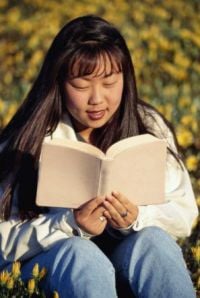* Terms and Conditions apply.

As a tutor who focuses primarily on the teaching of English Literature (or, more accurately, Literature in English) to IB Diploma and A-level students, I have become increasingly concerned about the relationship that many of my students have with the texts that they study. There often seems to be very little sense of enjoyment, with literary texts being given much the same status as text books: they are to be read, assimilated and regurgitated, rather than actively engaged with.
In many cases, Hong Kong students’ lack of enjoyment of literary texts may be due to a lack of knowledge of the wider cultural context for works of literature chosen for them in school. This is partly due to students’ cultural backgrounds and experiences. After all, is it reasonable to assume that an ethnically Chinese or Indian student studying in Hong Kong will have the familiarity with Christianity and Christian symbolism that the poetry of, for example, William Blake demands of them? A second reason for this lack of enjoyment in reading literature may also stem from students being so focused on learning in order to pass the assessments and exams within their school curriculum that there is minimal time available for personal study which could include finding out more about the cultural context of different works of literature. Such personal study could include knowledge of historical events, current affairs, wider social debates and of course, other works of literature, as all of these are invaluable to one’s reading and understanding of literary texts. The more one knows about the world when a writer was creating their text, the more refined one’s appreciation of that text will be.
The nature of examinations is also a factor when considering many students’ somewhat reluctant approach to literature. Examinations related to the GCE A-levels, IB Diploma and HKDSE test students’ understanding of literature in three ways: firstly, by answering questions on prepared texts under exam conditions; secondly, by producing coursework essays on prepared texts; and, thirdly, by writing essays on unseen texts. Examinations on prepared texts tend to encourage students to learn the ‘facts’ about texts, which they have ‘learnt’ from their teachers and tutors, while examinations on unseen poems force students to adopt an approach that could be said to be the antithesis of how literature should be approached and appreciated.
Literary texts need care and attention. They need to be considered from many different perspectives, and research needs to be carried out to gain understanding of unfamiliar language, allusions and references to other texts, people or events with which a student is unfamiliar. But most of all, literary texts need time. The words, ideas and images within a text need to ‘percolate’ (move gradually) through a reader’s consciousness, slowly giving rise to ideas and associations that did not come to them at the first reading. Our first reading of a work of literature is rarely, if ever, complete. True appreciation of literature comes slowly, and this is why coursework on texts that students have chosen for themselves tends to produce the best and most interesting results, with time and enthusiasm leading to more perceptive readings.
My view of how students should approach works of literature has, perhaps, best been expressed by American poet Billy Collin’s (1941- ) in his ‘Introduction to Poetry’ (http://www.loc.gov/poetry/180/001.html), a poem I encountered in a GCSE past paper. I wonder if the examiner was aware of the irony of asking students to analyse a poem in 45 minutes that extols the virtues of the slow and careful approach to textual analysis?
Matt Wisbey